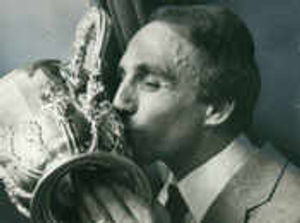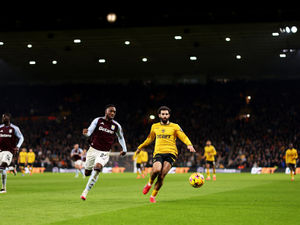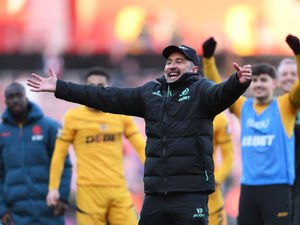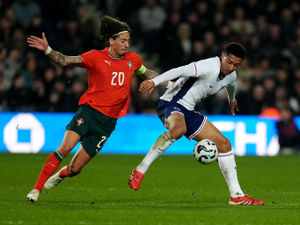The picture painted of Bill McGarry
Former Wolves boss Bill McGarry will always be remembered as the manager who brought League Cup glory to Molineux in the 1970's - and then relegation.

And last night he was painted as the tough tactician who made the difference to the last 'great' Wolves team.
But the late former boss was also described by his players as the man who failed to build on his success and sowed the seeds of the club's decline.
McGarry came to Molineux in 1968, inheriting some of Wolves' best talent for years in Frank Munro, Derek Parkin, Mike Bailey, Kenny Hibbitt, Derek Dougan and Dave Wagstaffe, as well as Peter Knowles.
But after steering the club to top-five finishes in 1971 and 1973, the UEFA Cup final in 1972 and the League Cup in 1974, he was sacked after the club were relegated in 1976.
Speaking on Sky Sports' 'Time of our Lives' documentary on Wolves, former club record scorer John Richards - who grabbed the winner in the 1974 final against a star-studded Manchester City side at Wembley - had his own theories as to why.
He said: "The older players like Mike Bailey, Derek Dougan and Waggy were leaving and he tried to replace them like for like, but you couldn't do it.
"He tried to make Steve Kindon into a centre-forward but he wasn't a Dougan type of centre-forward. He brought in John Farley to be a Waggy and he wasn't that, and he never replaced Mike.
"If there was ever a criticism of McGarry, it was that he could not adapt his tactics to different players."
Hibbitt, who scored the first goal in the 1974 final, believes time worked against his former boss.
He said: "We should have been a stronger squad but he waited until it was too late and we never had the squad to maintain the standard."
But all three believed McGarry brought a vital discipline and a tactical nous.
Bailey said: "Ronnie Allen could spot a player, but at times we were a bit sloppy on the pitch and McGarry changed that – there was a toughening up which was needed.
Richards revealed: "McGarry also made myself and Dougan more dangerous – I was right-footed and Derek left-footed so we used to play on our natural side of the attack, but he switched us around so we were coming in onto our favourite foot and it worked a treat."
As younger players, Hibbitt and Richards were terrified of McGarry.
Hibbitt said: "He was a real tough guy, a sergeant major type. But he played a big part in my career. I didn't necessarily like him, but I respected him."
Some of the players' fondest memories were from the UEFA Cup run and they believed McGarry eased the pressure brilliantly, particularly for the quarter-final away leg against the mighty Juventus.
Bailey said: "He pulled off a masterstroke bringing in John Charles as our ambassador.
"John took us shopping and him being there made a difference when we were in the stadium – normally there would have been animosity as the opposition, but as soon as we walked out into stadium, the crowd just stood up and the noise was incredible – 'Charlo, Charlo' went up the cry."
With Wolves losing the UEFA final to Spurs, then going down in the FA Cup and League Cup semi-finals the following season, Richards believed the pressure was beginning to tell on their manager by 1974, which was to end in triumph.
The former striker said: "I can remember the League Cup semi-final away leg at Norwich. We drew 1-1, and we got back to the hotel and we were delighted.
"We fancied our chances for the second leg. All McGarry did was sit in the corner on his own, because he maybe thought that was our last chance."
McGarry was also fiercely competitive and regularly took his players on at table tennis, golf and squash.
Bailey said: "I remember when we went to Worthing before the League Cup final. Myself and Waggy played the gaffer and Sammy Chung.
"We always played for a new golf ball and it was all level on the 18th, when Waggy hit one and it bounced and bounced before going into the hole for an eagle to win it for us. We were all due to have a sauna that afternoon but he was livid and instead he made us train."
All three believed that Knowles, who retired at the age of 23 in 1969 to become a Jehovah's Witness, would have developed into a giant of the game.
Bailey said: "He was a genuine superstar – top notch. He could do anything on the pitch.
"This is a lad I could never see packing up football. There was so much going for him, but I absolutely admire the lad for standing up for what he believed in. He had some funny ways.
"I remember we went on tour to America we were given so much a day as a living allowance, but Peter never spent a penny and used to pinch food off the players' plates.
"Then I asked him what he'd done with his money when we got back and he'd bought himself a yellow MGB with it!"




